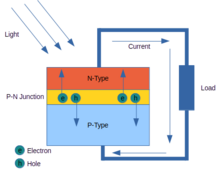Dave in AZ
Solar Enthusiast
But if the solar panels create power whether or not it is needed (they have no indicator of load need), they create power 100% of the time they are in the sun. If that power cannot flow into the battery, it MUST be dissipated as heat somewhere, whether that it in the controller,
Your understanding of electricity is wrong. Your use of terminology is wrong, and show you don't understand the basic physics. You keep using the word power as a synonym for electricity or voltage, it is not. Power is a defined term. If you don't have an electrical current to a load, then there is zero power.
Electric power is the rate of transfer of electrical energy within a circuit.
https://en.wikipedia.org/wiki/Electric_power
Something sitting in the sun, heating up and having electrons kicked up and down, but no current flowing to a load, is the exact same as a dead fish sitting in the sun--zero power generated.




